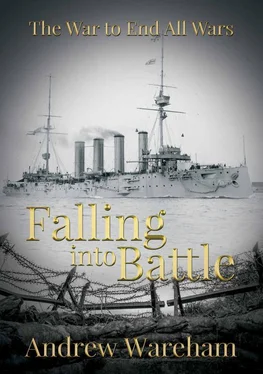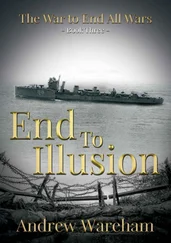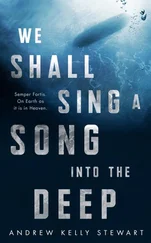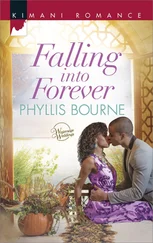“Not a lot sir.” Willoughby - much the same age as Richard and undistinguished in appearance, moderately fair, of middle height, pale blue eyes, well-built but not exceptionally so – gave a diffident smile. “Joined in ’13, sir, from Sandhurst as normal. I was Harrow before that, had always intended to join our regiment and was fortunate enough to do so. Now I have been lucky again, sir!”
Hero-worship – not something Richard had expected, especially from a man his equal in age. He could live with it.
“Mr Presteigne?”
Younger and leaner and darker, still a boy facially.
“I joined when war broke out, sir. From Rugby. I have completed the regiment’s training, sir. I was Cadet Force previously, of course. We Presteignes have always soldiered with the Bedfordshires, sir. Like the Willoughbys. My elder brother is a lieutenant in the 1 stBattalion, sir. They are coming back to England, I hear, sir, but he might not be back in time for victory, sir!”
“He will have to be damned slow if that’s the case, Presteigne! We are in retreat still in the west, are trying to form and hold a line from the southern Belgian coast down into northern France. We will be part of the fighting to do that. With luck, we may keep the Germans out of Calais.”
Presteigne did not seem to have read the newspapers or looked at any maps. He was shocked.
“Very briefly, I will demand only that we – the officers – are to be first in and last out on every occasion. We ask nothing of the men that we will not do ourselves.”
“Yes, sir. We know that of you, sir!”
It finally occurred to Richard that his medal was to be a burden. He was to be the leader in every bold endeavour, to do more than any other, to search for the opportunity to sacrifice himself. He had been looking forward to a profitable career, but it seemed he would have to survive the war first, and that was easier said than done perhaps.
“We shall meet the company in a few minutes. Do you know them already?”
“The draft was formed on Friday, sir. We met them then. Other than that, we had seen some of the men in various training platoons and companies.”
“A pity. It would have been handy if you had some idea of their various abilities. Get to know them as quickly as you can. Put a name to their faces and have some idea of who they are. Useful if you can call them by name when you’re busy in the field. I found out in Belgium that one of my survivors had a sniper’s skills and another knew a bit about using black powder for demolitions. I should have known beforehand.”
“Sergeant Painter is battalion boxing champion at his weight, sir. He has fought more than once in army competitions and has won several cups for the battalion.”
“Good. Sounds like the right sort - and that’s the sort of thing we need to know about the men.”
What he was saying sounded good and for all Richard knew, it might be true. It was important to sound right, at the beginning.
“Let us go out to the square, gentlemen, to meet our people.”
Sergeant Painter might have been a fine man in the ring but he was limited otherwise. He had the knowledge to work the men on the drill square, which had been sufficient in the depot, and could be relied upon to carry out any order. More than that, thinking for himself, was beyond him.
He was a large man, boxing at cruiserweight, and possessed a cauliflower ear and a squashed nose and little else to remember. He was not the brightest of mortals.
“Draft for D Company, sir, with Private O’Grady added and making sixty-one men, sir. All present and correct, sir.”
“Thank you, Sergeant Painter. Are the men mostly new recruits or have they been posted from companies in the 2 ndBattalion?”
That was a hard question.
“New men, sir, apart from them that ain’t.”
Richard saw his error and smiled.
“Thank you, Sergeant Painter. What can you tell me of the corporals?”
“We’ve got two, sir. And a pair of lance-corporals. Them ‘as been in for a year or two, sir, the corporals longer than the lance-jacks.”
Wholly meaningless and valueless; it established the worth of Sergeant Painter.
“Very good. Shall we inspect the men now?”
Sergeant Painter knew what to do for inspection and led Richard along the three ranks so that he could see the men for himself.
The private soldiers ranged from a dubious eighteen to thirty-five going on forty, the flood of volunteers at the declaration of war bringing all ages to the colours.
At least two of the sixty were well under-age, almost of a certainty, fourteen if that old, able to shave and getting away with a false birth certificate. The document was very simple, a printed form with handwritten entries and an indistinct rubber stamp that any printer’s shop could mock up. It would not have been difficult to lift a batch from the official printery – they had never been regarded as a valuable item that needed be locked away. No doubt some enterprising gentleman was selling them in town. There was nothing to be done without creating a great fuss. The boys were keen and would probably do the job; if they showed lacking in stamina, they could be sent back, if they survived.
Richard was more inclined to worry that some of the older men might not be able to rough it in the field – but again, that could be dealt with when the problem arose.
All were well-presented, enthusiastic, wanting nothing better than to go out to fight the Hun. They would learn the error of their ways in due time; for the while, they were as good as he could hope for.
“Very good, Sergeant Painter. The men will be assigned to platoons when they reach France and join the remainder of the company. We will have four corporals, so four platoons. Two sergeants and the three officers you can see. Lieutenants Willoughby and Presteigne will continue to exercise the men as they have been. Rapid fire in the butts is our greatest need. We can reduce drill to the minimum. Have the men experience of route-marches?”
“Yes, sir. Fifteen miles every second day, sir.”
“Good. They will be marching with a full pack when we get to France. Check every man’s gear, Sergeant, and examine their boots. They must have all they need for the field. Put a sharp on the bayonets. Carry on. Officers with me.”
They left the square, with some relief.
“Have we company offices, gentlemen?”
“Not as such, sir, but we have been given space in the depot.”
“Good. What is the procedure for meals?”
“Working dress at breakfast and lunchtime, sir. Mess undress for dinner.”
“Lunch must be the next necessity – I have some missed meals to make up for. The afternoon will be adequate for all we need do. I want to look at each man’s record – which should not take too long for the new recruits. Have you batmen?”
“Not as such, sir. There are officers’ servants at the depot who are available to transitory officers.”
“That can wait till France, then. We must see what the battalion’s policy may be. What about your own personal items, gentlemen?”
“I have a full set of uniforms, sir. What else do we require?”
“Compass; flashlight; robust pocket watch; waterproof ground sheet; extra boots; petrol lighter; blanket; raincoat; thick stockings… The list is substantial. Do you smoke?”
Neither did.
“Very wise – it can be difficult to lay one’s hands on gaspers, I am told. Some officers keep hip flasks. That I do not recommend. You will probably carry a rifle in the field so you might consider a webbing belt and pouches.”
They were amazed that an officer might use a rifle.
“A revolver is useless, unless you are another Billy the Kid. With a rifle, you can be useful in repelling an attack and you are less visible to snipers. The only occasion on which I used a revolver I needed six shots to hit a man who was no more than five yards from me by the end, with a great big bayonet he intended to stick into me. I carried a rifle after that.”
Читать дальше












